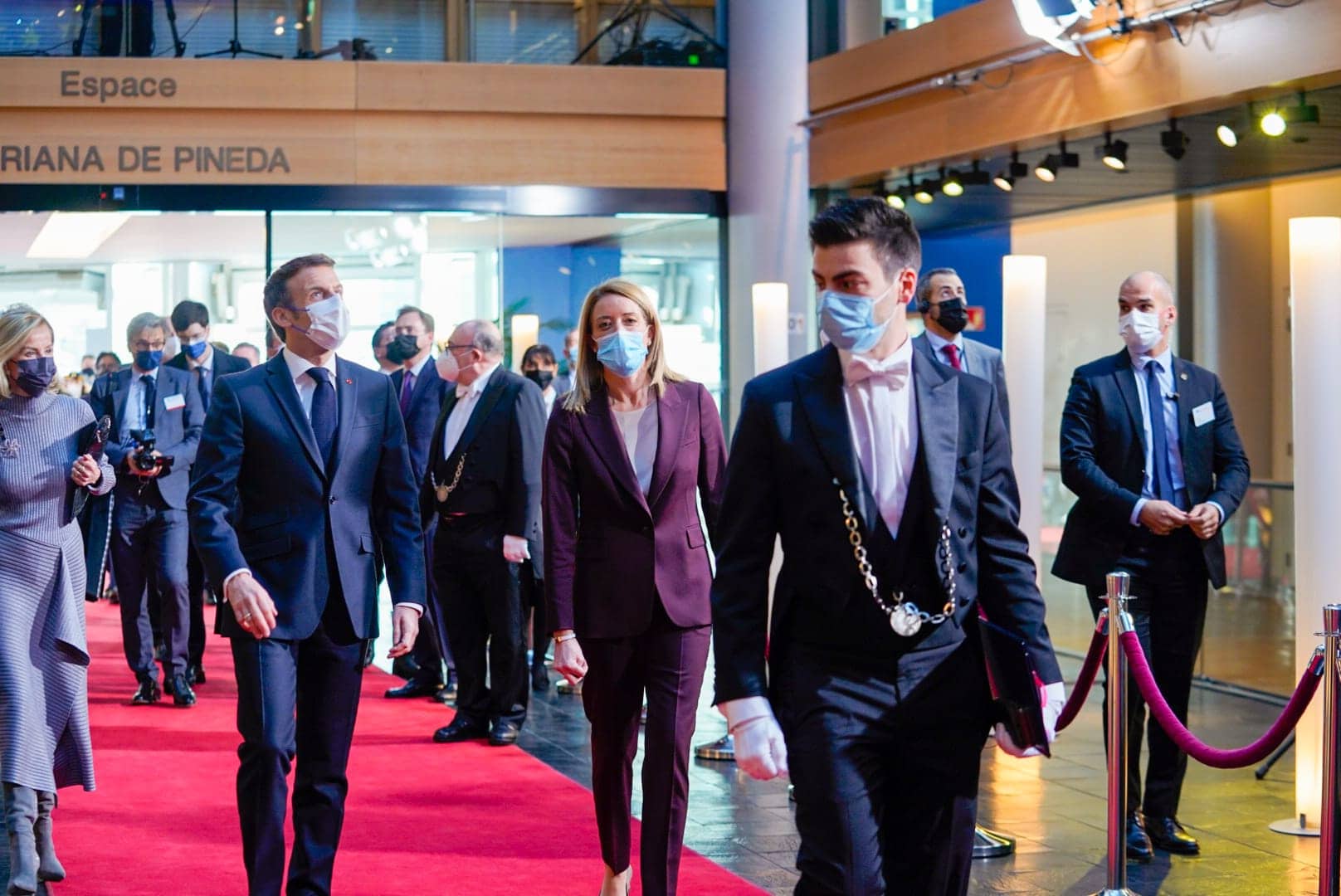
The election of Roberta Metsola as President of the European Parliament has been accompanied by much criticism because of her anti-abortion stance. Metsola had to defend herself on several occasions and explain that her personal convictions would in no way interfere with policy implemented at the level of the Parliament.
The issue of abortion quickly came to the forefront this week with French President Emmanuel Macron’s speech to MEPs in the Strasbourg parliament on Wednesday, January 19th. In this speech, Macron expressed his support for the inclusion of the right to abortion in the Charter of Fundamental Rights of the European Union: a way for him to send a signal to his electorate that he does not support Metsola’s anti-abortion positions.
While Metsola may have expressed her opposition to abortion, she has also held progressive positions in the past, both on migration and civil rights. The day after her election, she was keen to demonstrate her commitment to supporting women’s access to contraceptives and abortion in the European Union. Metsola signed a pact—named after Simone Veil, the French politician who made abortion legal in France in 1975—intended to guarantee women in Europe “human dignity and human rights,” including safe and easy access to abortion. The pact was proposed on January 17th by the group Renew Europe, with the French MEP Stéphane Séjourné from La République En March at its head.
The Simone Veil Pact will not force Malta, where Metsola is from, to change its legislation banning abortion. But the support of the new speaker of parliament proves that she is clearly putting her pro-life convictions on hold.
